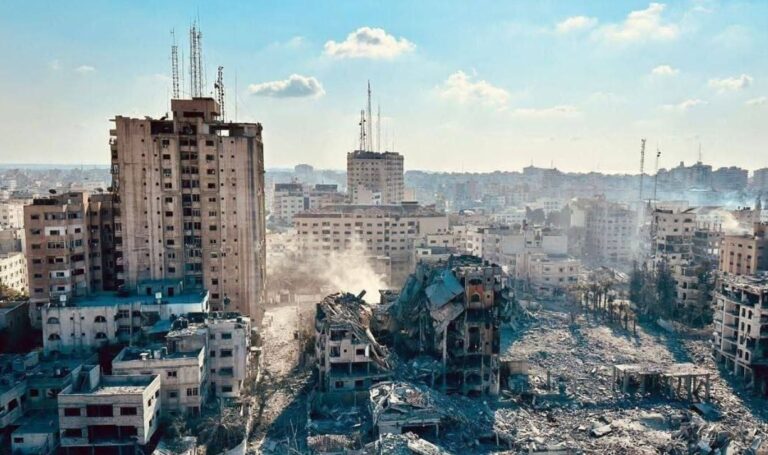The current conflict was triggered by a sudden attack by Hamas, the Palestinian Islamic terrorist group, which targeted Israel with a series of rockets. This attack was followed by infiltrations by militiamen in hang gliders and border explosions, causing significant loss of life on both sides. Let’s look at 10 answers you need to know if you want to better understand the war between Israel and Hamas.
Table of Contents
Why Gaza
The Gaza Strip is a small portion of territory between Israel and Egypt, occupied by Israel in 1967 during the “six-day war.”
It is densely populated, with more than 4,000 people per square kilometer. After the Israeli withdrawal in 2005, the government of the Strip was handed over to the Palestinian National Authority.
But in 2007, Hamas took control of the region. This has led to a wide range of challenges and tensions between the different parties involved.
What is Hamas?
Hamas is a Palestinian political-military organization founded in 1987, whose name stands for “Harakat al-Muqawwama al-Islamiyya” or “Islamic Resistance Movement.”
Hamas is committed to the struggle against Israel and the establishment of a Palestinian state within its pre-1948 borders.
It is considered a terrorist organization by the United States and the European Union. In the past, it has received funding from Syria and Saudi Arabia, but currently enjoys the support of Iran and Lebanon.
Origins of the Arab-Israeli Conflict
The conflict between Israelis and Palestinians has deep roots in the historical and religious dimensions of the region.
Palestine was historically under the rule of various empires, including Roman, Persian, Byzantine, Arab, European during the Crusades, and Ottoman until 1918.
After the British Mandate, the creation of Israel in 1948 led to the emergence of the “Palestinian question.” Peace efforts reached an impasse, and the conflict persisted.
Read also: Why is there conflict in the Gaza Strip? The history and reasons for the war
Is there a state of Palestine?
Palestine is a “limited recognition” state. In 1988, the PLO (Palestine Liberation Organization) proclaimed the “State of Palestine,” but without clearly specifying the borders.
Currently, it is recognized as an “observer state” at the United Nations by 138 countries. The question of Palestinian status continues to be an unresolved issue and a source of tension.
Abu Mazen and the Palestinian Authority in the West Bank
Abu Mazen, also known as Mahmoud Abbas, is the chairman of the Palestinian National Authority (PNA) in the West Bank.
However, Hamas’ control over the Gaza Strip and the weakness of the PNA pose a significant challenge to achieving a peaceful solution.
Relations between Iran and Israel
Iran provides support to Hamas in its struggle against Israel and pursues the destruction of the Jewish state.
Relations between Iran and Israel are hostile and tense. Iran’s role as a sponsor of Hamas contributes to the deteriorating situation.
Abrahamic Accords
The Abraham Agreements, negotiated under the presidency of Donald Trump, have opened or restarted diplomatic channels between Israel and various Arab countries, including Saudi Arabia.
These agreements aim to isolate Iran and promote stability in the region. However, the current escalation of violence calls into question the sustainability of these agreements.
Failure of the Peace Accords
Despite earlier efforts to achieve peace, including the 1993 Oslo Accords, which resulted in mutual recognition between Israel and the PLO, a final solution has not been found.
Several variables, including Israeli settlement construction in the West Bank, political differences and opposition from radical groups such as Hamas, contributed to the failure of peace efforts.
Political games and implications
The current situation offers tactical and strategic outcomes for both Hamas and Israel. Hamas demonstrates Israeli vulnerability through bold and violent tactics. While Israel can strengthen internal political positions by exploiting the anti-Palestinian drives of its far-right allies.
In conclusion, the Israeli-Palestinian conflict is a complex problem with deep historical roots, political tensions and a significant impact on the region.
The search for a peaceful solution remains a challenge, while the recent escalation raises questions about the future of diplomatic arrangements in the region.
Read also: Who is gaining from the war between Israel and Hamas?












